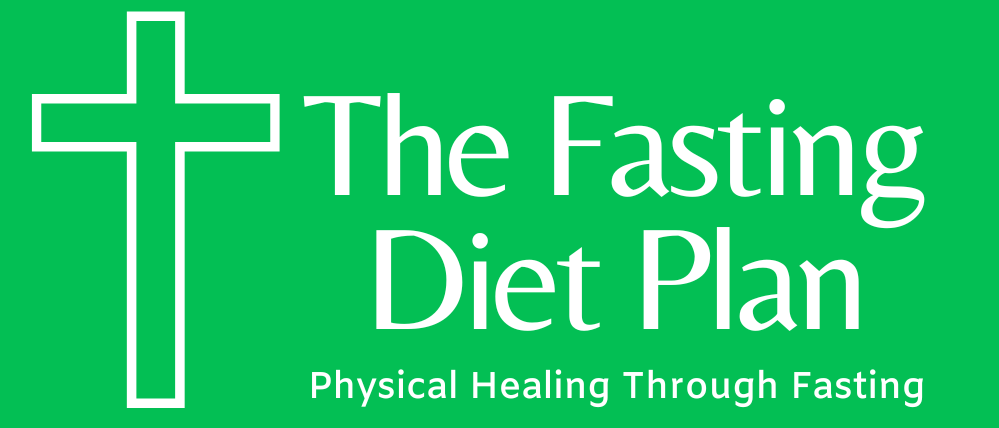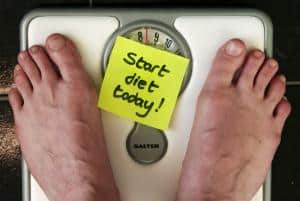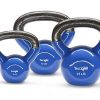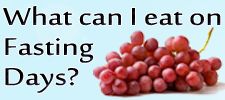Welcome to The 5:2 Fasting Diet Plan Frequently Asked Questions page. This FAQ is designed to have a better understanding of the 5:2 Fasting Diet Plan. Can’t find the answer to your question? Feel free to contact us and we will endeavor to answer them for you.
Also, if you have any tips and valuable resources that you think others may find useful, or questions that you know that people have and you can answer, please feel free to share your knowledge.
- How many calories should I have on a non-fasting day and how I can determine it?
- I just purchased the book and downloaded it, but will I get a physical copy in the mail as well?
- I am really good on the fasting days but when it comes to the regular non-fasting days I am overeating. What is the best way to handle this?
- I am having a real battle and I feel that I am really a failure when it comes to losing weight. What should I do?
- I am requesting to start all over again on the 5:2 fasting diet plan. How can I do that?
- Who will benefit from the 5:2 diet?
- Is this diet right for everybody?
- When can I start?
- How long should I fast for?
- How should I spread my calories across a fast day?
- What should I eat/not eat on a fast day?
- How should I count the fast day calories?
- Should I exercise when fasting?
- How does it feel to fast?
- How much weight can I expect to lose and how should I monitor it?
- What if I am not Losing Weight?
- What is the secret to success with this diet?
How many calories should I have on a non-fasting day and how I can determine it?
On the 5 days which are the non-fasting days, you can eat what you normally do. We use the rule of thumb that women need 2000 calories and men need 2400 calories per day, and on a Fast Day you should eat a quarter of a normal day’s recommended calories.
You can use a free calorie counters online, where you can see the amount of calories in specific ingredients like this one https://www.caloriecount.com/ to know how many calories certain foods have.
Also, here http://thefastingdietplan.com/food/food-and-nutrition/ we have compiled a list of foods and their calorie counts per portion. Counting calories will help to create an awareness of what you are consuming on the “normal” non-fasting days as well.
You may also refer to this link on how to start a fasting diet plan… http://thefastingdietplan.com/planning/how-do-i-start/
I just purchased the book and downloaded it, but will I get a physical copy in the mail as well?
I love that you are keen to get your hands on a physical book but unfortunately I only offer the book in the current downloadable version.
The reason is due to costs and volumes, I can not produce the book and ship it for that cost, to get a physical book sent outside Australia (which is where I live) is very expensive, it would be over $50.
So I have left it at this price to make it convenient and accessible for all.
My suggestion would be to print it out if you are very keen, printing both sides of A4 or A5 would only cost a few dollars, maybe between $2.50 – $5.00 depending on where you live. If you have a workplace, an office works, stationery store or local library nearby, you may be able to print it for less, so this may be your best option.
If you are on the 4 week challenge, I hope you are enjoying it and are reading the emails and tips to keep you on track. If you have any questions, feel free to shout out.
I am really good on the fasting days but when it comes to the regular non-fasting days I am overeating. What is the best way to handle this?
From my experience, it can be due to many things, but most commonly, it is most probably something to do with mindset.
If you have joined the 4 week challenge, try to stick to the guide and read each of the emails you will receive over the coming weeks, as it will set you up for achieving your goals and give you the best chance to lose weight and burn fat if you follow the plan.
Awareness of what is going on in your mind and body is always the first step to any change and creating new habits can take time.
Some people do find that on the days they are not fasting that they tend to overeat.
Staying motivated comes back to you being clear on why you took up the challenge in the first place and what it is you really wish to achieve.
There are lots of different things you can try to stay motivated and it’s working out whether it’s motivation or other things that perhaps is going on causing you to derail or sabotage your efforts.
Be sure to check out this information on the website where you will find more information – http://thefastingdietplan.com/category/planning/
Make up a batch of some of your favorite treats and have them on hand in the freezer and take them with you. Learning how to bake some of these treats will make you more aware of what you are eating and will provide a solid foundation for life and years to come.
http://thefastingdietplan.com/products/low-calorie-recipe-book/ contains some great recipes.
Keep going… don’t give in, believe in yourself and stay focused on the goal and why you joined this challenge to begin with.
Once the 4 week challenge is over, I will be sending you emails quite regularly to touch base and keep you going and motivated with great information and more tips about motivation and health in general. Be sure to read them and take advantage of the support.
I am having a real battle and I feel that I am really a failure when it comes to losing weight. What should I do?
Please stop beating yourself up. Firstly, how can you stay motivated and look forwards to creating new habits if each time you slip up or make a mistake you are unkind to yourself.
You have started the 5:2 diet plan journey with full commitment and dedication. Make sure you don’t derail that dedication with negative thoughts. I’m sure you can do it.
You need to use positive self talk and encouragement. If you do not support yourself and be kind to yourself no one else will. You must be the first to show love and kindness.
Awareness of what is going on in your mind and body is always the first step to any change and creating new habits can take time.
Keep going… don’t give in, believe in yourself and stay focused on the goal and why you joined this challenge to begin with.
You see, success with weight-loss and health is often driven by mindset issues rather than just what we put into our body.
The truth is most of us know what we should and shouldn’t eat, most of us know that we should exercise, but knowing something and doing something can be very difficult (and that is because of all the conversations that goes on in our head, all the judgments, self criticism, the fears, etc).
It is because of our mindset that I have continued writing emails to support everyone, even after the initial 4 week challenge, because we all need to know that when times get tough or you feel like giving in that someone is watching out for you.
It is also the reason why I have designed the low calorie recipe book because, just like you, so many people email me directly and ask for advice around what to eat, meal plans, exercise etc.
I am requesting to start all over again on the 5:2 fasting diet plan. How can I do that?
For you to start over again with the 5:2 diet plan 4 week challenge, you need first to unsubscribe and then resubscribe. Here is a step by step process to help you do that:
1) The first thing you need to do to start all over again is to unsubscribe (scroll to the bottom of any email I have already sent to you and click on the unsubscribe link). See image below. Unfortunately I cannot do this for you.

2) Once you have done that, you will need to resubscribe; you can do so by clicking this link http://thefastingdietplan.com/products/quick-start-guide/. Fill in your name and your email and click the button “Get Instant Access”.
3) Then check your email and the confirmation link for joining the 4 week challenge should be there in your inbox (give it a few minutes to appear).
If you can not see it there, be sure to check your spam or trash folder.
If you have any problems, drop me a line.
All the best for recommencing and recommitting to yourself.
Who will benefit from the 5:2 diet?
Scientific research on intermittent fasting was mostly done on volunteers who were overweight. Obese or overweight people who follow the 5:2 diet strictly are known to experience a steady weight loss, with all of the health benefits that come with it. Studies also suggest that the 5:2 diet may prevent breast cancer and type 2 diabetes, as well as dementia. Other possible health benefits are described below.
Is this diet right for everybody?
Although a very effective weight loss program for obese or overweight people, intermittent fasting is not recommended for everyone. Children, pregnant or breastfeeding women and diabetics should not fast. The same goes for people who are underweight, are recovering from surgery and are sick. If you are on certain prescribed medications, it is better to consult with your doctor first, as some medicines don’t combine well with fasting.
If you are of normal weight or have reached it through the 5:2 diet, there may still be health benefits to intermittent fasting, although these have not been studied as extensively. Our bodies do repair and maintain cells when we fast. Some people on the 5:2 diet move to a 6:1 regime as soon as they meet their target weight.
When can I start?
You can start with 5:2 intermittent fasting as soon as you feel motivated and ready. The beauty of this eating plan is that you can pick the days that you want to fast, while you can carry on with life as normal the rest of the week. This means that only two days of your week will require extra planning, as opposed to other diets. Read our “How do I start the 5:2 fasting diet” section for tips on how to make it work for you.
How long should I fast for?
With the 5:2 fast, you choose two days of the week to fast while you eat normally the other 5. Keep in mind, however, that a fast day is actually supposed to 36 hours and not 24 hours, as you will have your last normal meal on the evening of the one day and only eat normally again on second morning thereafter. If you want to, you could also decide to make your fast days two consecutive days, if it is easier to plan your week that way. You can continue with the 5:2 diet indefinitely, or until you reach your goal weight. As you are not depleting your body of any important nutrients as is the case with some quick weight loss plans, the 5:2 diet can only have benefits for your overall health.
How should I spread my calories across a fast day?
It really doesn’t matter how you consume the calories, as long as you keep it below the limit. Some people prefer to skip one meal, others only have one larger meal a day and some people take smaller snacks throughout the day. In the end the best choice for you is whatever will suit your daily schedule best and what will be easier for you to stick to.
What should I eat/not eat on a fast day?
The trick to keep extreme hunger pangs at bay is to eat the right types of foods on fast days. Vegetables (fiber) and meat (protein) will fill you up and keep your blood sugar stable. Sugars and carb-rich foods will keep you hungry and leave you feeling shaky, so avoid these at all cost. If you absolutely have to snack, avoid carbs and opt for raw veggies or nuts, but keep an eye on your calorie count. Drink-wise, plenty of water is obviously a great choice, but you can also consume any other drinks that don’t have calories, including unsweetened tea and coffee. As soon as you learn to make better choices on your fast days, you will more than likely notice that you are starting to eat healthier on normal days as well. See our Recipe section for ideas and meal plans.
How should I count the fast day calories?
Follow our recipes for specific meals, as the calories for these are already calculated very precisely. If you want some more variation, there are plenty of free calorie counters online, where you can see the amount calories in specific ingredients. We also have a list of foods with typical calorie counts available here. From there it is a question of simple math.
Should I exercise when fasting?
Avoid extreme training exercises on your fasting day, as you might just not have the energy for it. However, if you exercise while fasting, you may burn fat faster and exercise can serve as a welcome distraction during times you would otherwise have had a snack. So, by all means do some mild exercising.
How does it feel to fast?
Honestly, your first couple of fast days will be hard. But it does get easier. You will obviously feel hungry, but the hunger will come in waves and won’t get worse. The feeling of hunger will pass. If it really gets bad, have some tea, coffee, drink some water or vegetable stock. You may also experience headaches, feel slightly shaky or have a weird feeling in your stomach. Some people get irritable and grumpy and others don’t sleep too well on the fast night, leaving them to feel a bit washed out the next. After a while, as your body adjusts to the fasts, you won’t have all too many side effects anymore.
How much weight can I expect to lose and how should I monitor it?
How much weight you will lose will depend on a lot of factors, such as your age, weight and level of activity. On average, people lose about one pound per week on the 5:2 diet, although you may lose some more in the beginning.
You could monitor your progress either by measuring or weighing yourself, or both. Your waist measurement is usually the most accurate; just remember not to suck in your stomach when measuring. Your waist size should never measure more than half of your height. Weight will also indicate fat loss, but keep in mind that weight also fluctuates due to your body’s water content, which is why measurement is recommended. Whether you measure/weigh weekly or daily is entirely up to you, although research has shown that people who weigh themselves daily are more likely to stick to their diet.
To track the effects of the diet on your overall health, go see your doctor and have him or her check your LDL and HDL cholesterol, as well as your blood pressure and blood glucose. A before and after test will be a good indicator of how much you are lowering your risk of getting diabetes/heart disease.
What if I am not Losing Weight?
The goal of this diet is not to obsess about your weight, but to become healthier and to lose fat. However, if you feel that it is not quite working, have a look at your normal days to see if you are not overcompensating and bingeing on food. The other option is to add more fast days to your week, switching to 4:3 fasting or alternate day fasting.
What is the secret to success with this diet?
Keeping your diet lower in carbohydrates and sugars throughout(also on your normal days) may make things easier for you as you may experience fewer side effects such as shakiness and headaches. But this may actually happen naturally as many people who follow the diet report that carbohydrates seemed less appealing to them after a while. In the end, however, it comes down to your own mind set. Motivation is absolutely key when it comes to sticking to the 5:2 fast. Intermittent fasting becomes a way of life and you have to embrace the fact that you are taking control over your life and your food choices.
















